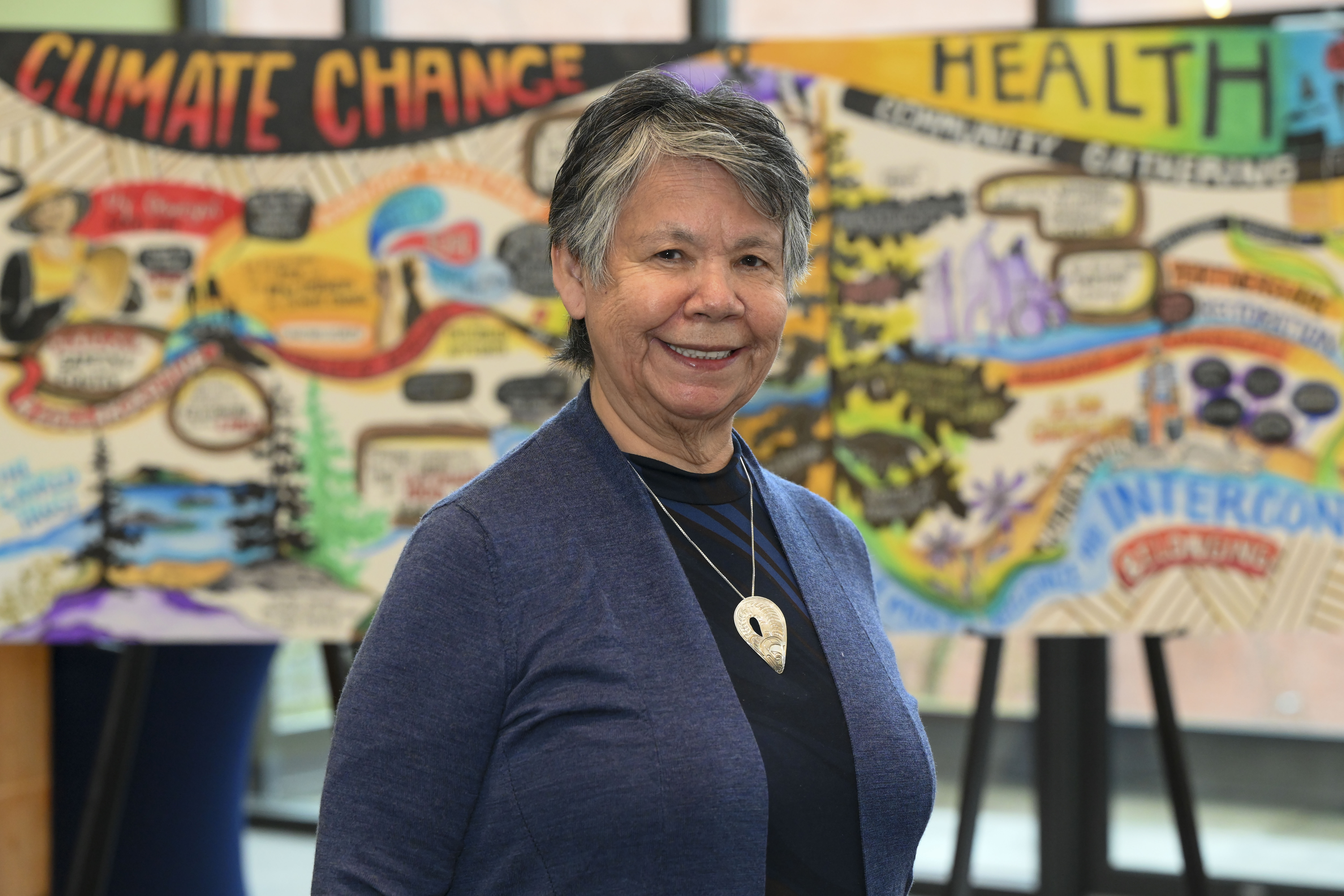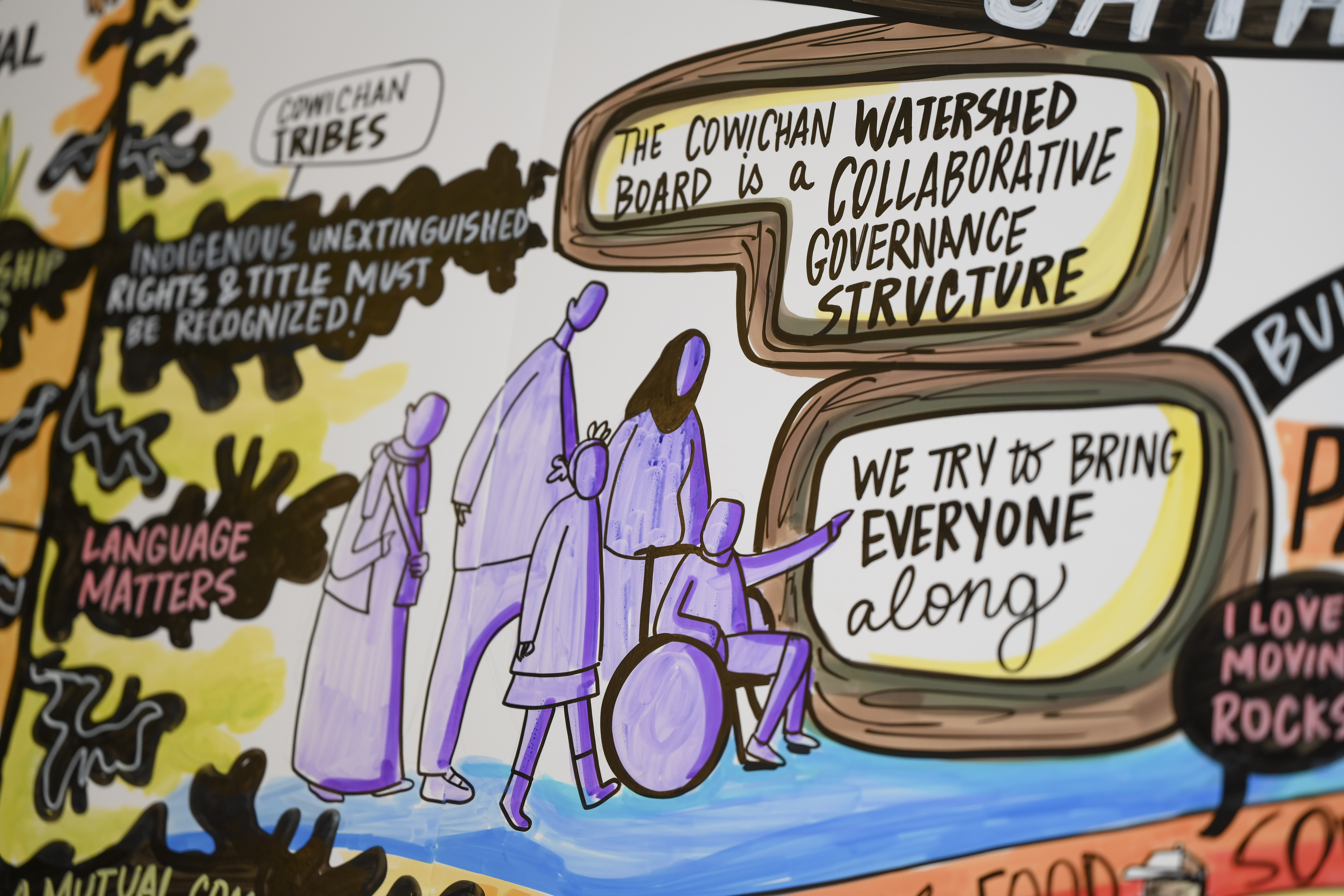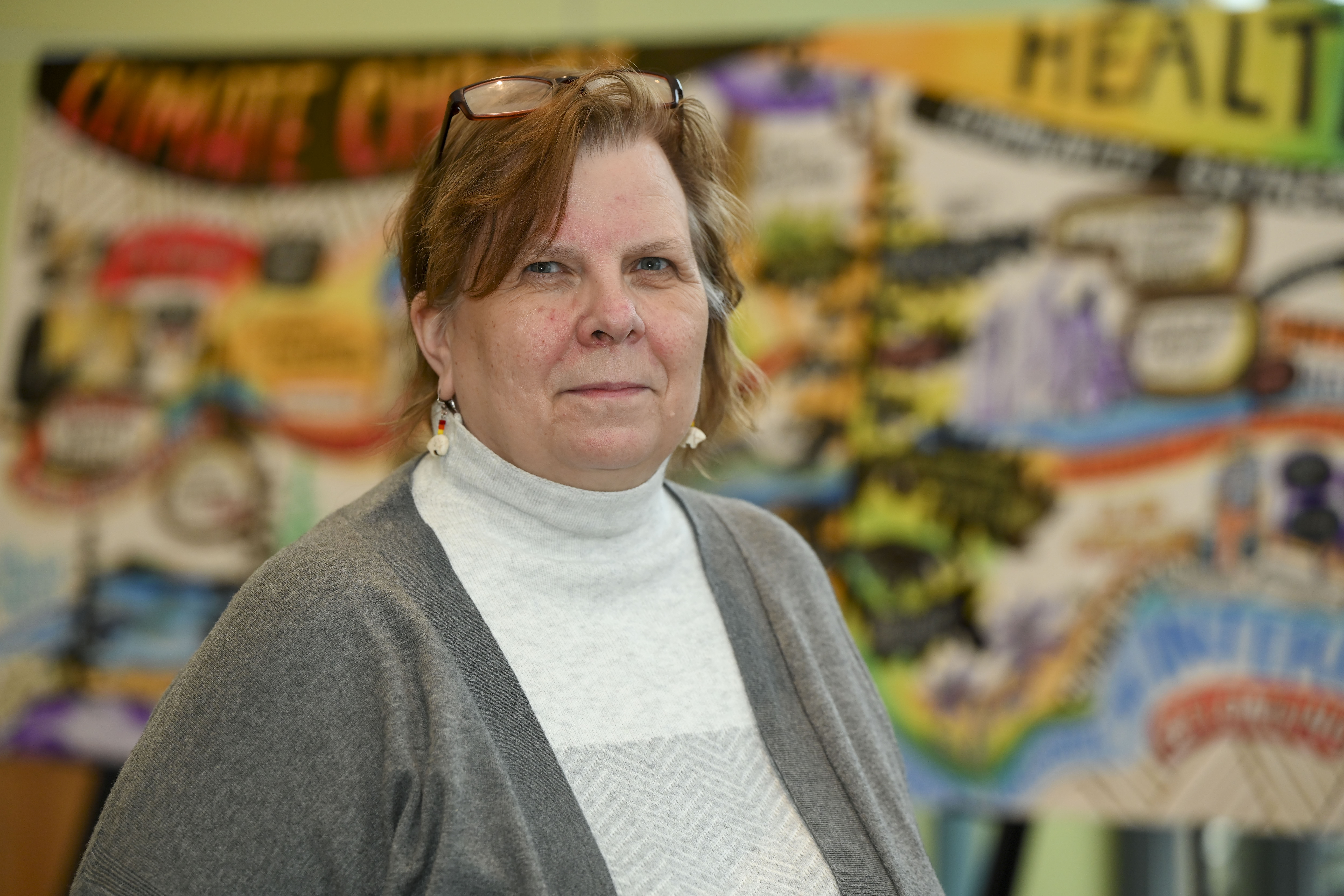Empowering, collaborative, embracing, inclusive – these are just some of the descriptions that highlight the impact of the recent Climate Change and Health Community Gathering in Nanaimo.
The two-day event, co-hosted by Snuneymuxw First Nation and Island Health, brought together attendees from Indigenous communities, municipalities and the health authority to share their stories, programs, projects and experiences related to climate action. Near the end of January, about 170 participants joined at the Vancouver Island Conference Centre to learn about the effects of climate on health, foster and strengthen partnerships, learn about community needs, and boost health and well-being through a holistic approach.
Key to this approach is the importance of developing a shared path to climate resilience with Indigenous Peoples – one that supports the value and recognition of bringing together Indigenous knowledge and Western science. Walking a shared path is critical to climate resilience as presented in B.C.’s Climate Preparedness and Adaptation Strategy.
Accordingly, the Gathering’s outlook was intergenerational, cross-sectoral and multicultural. And it focused on the links between water, climate change and health, because water – and particularly droughts – highlight the vulnerabilities of islands to the changing climate.
“I was inspired by the many participants who enrolled and shared their stories and their journeys within their communities,” says Elder Geraldine Manson of Snuneymuxw First Nation, who was instrumental in providing cultural guidance for the planning of the Gathering. “Involving youth is vital in this – because youth will be the next stewards of the land.” Elder Manson also took part in a presentation that explored the social and ecological complexities and connections between the health of the Nanaimo River and the well-being of surrounding communities.
Elder Geraldine Manson of Snuneymuxw First Nation
“Being from a younger generation, having my voice heard, it’s an honour to be included in this gathering,” says Bartley Jones, a fisheries technician with the Snuneymuxw First Nation Marine Division. Jones spoke at the Gathering about his role, which involves monitoring fresh and salt water systems, using remotely operated vessels to examine underwater environments, and employing drones to view the land from above. He also stressed the importance of incorporating traditional knowledge from Elders into his work.
“I liked hearing everybody’s thoughts,” he says, commenting on the Gathering. “There’s so much value in being together and sharing our voices. It is needed.”
Stella Peters, a member of the Executive Council for Huu-ay-aht First Nations who participated in an absorbing panel on climate change, water and health, shares a similar outlook. “I found it very informative and very opening to a lot of people,” says Peters, also a member of the planning advisory committee for the Gathering. “People have different interests, different concerns, but overall what I think we’re doing is coming together to look at a problem that’s going to impact everybody.”
Connections – with each other and with our planet – were also highlighted by Michelle Staples, mayor of the City of Duncan. “As something that’s been said at this conference, we are the land, we are the water, we are the air. And yet we act and move in this world like we’re disconnected from that, and it’s not a part of us and it’s something we have to control,” she says. “Coming together with people – particularly hearing from people from an Indigenous worldview – really reminds us that we have to remember that connection. It’s vital for us taking care of the planet now, to help build a stronger environment for the future.”
Staples, a member of the Cowichan Watershed Board, was joined at the Gathering by former Chief Lydia Hwitsum of Cowichan Tribes and the board’s co-chair. Together, they spoke about the board’s collaborative governance structure. Staples also participated in a panel discussion that highlighted efforts underway in the Island region to create healthier communities. Her topic focused on the Vancouver Island and Coastal Communities’ Climate Leadership Plan, which she co-chairs.
The Gathering provided vital input and insights to Island Health, which is working to support climate action, resilience and community health. “This event is the first step and the foundation for the next 10 to 15 years of work in our new Healthy Environments and climate change programs, and we wanted to start building it on the input of communities in the region we serve,” says Dr. Réka Gustafson, vice president of Population and Public Health and chief medical health officer. “It was two days that spoke to our hearts, to our souls and to our minds.”
Dr. Paivi Abernethy, manager of Island Health’s Healthy Environments program, sees the Gathering as an important and invigorating beginning. “This was a collective endeavour – people came and participated, they joined. That’s what is so powerful,” she says. “We got a really good picture where we can play a role, implicitly or explicitly. And now we’re collecting all that information and sending it back to communities to help identify ways we can support them in building climate resilience.” Resources collected at the Gathering will also be shared with participants, and the ongoing dialogue and collaboration will be invaluable to the development of Island Health’s climate change strategy, planning and supports.
Dr. Paivi Abernethy, manager of Island Health’s Healthy Environments program
“I see our role as being this connector – connecting communities, First Nations and non-First Nations, to support a shared path. And connecting communities with our staff and local data to support decision-making,” says Dr. Abernethy. “I don’t know where we’re going to go just yet – but this Gathering was the start of our journey to improve community health by addressing climate resilience through a health lens, together.”
Island Health is committed to making a positive contribution to environmental sustainability and supporting community preparedness and resiliency for climate emergencies. We are taking action to reduce our greenhouse gas emissions by 50% from 2010 levels by 2030, and diverting 70% of waste from landfills by 2030.



